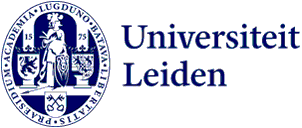
'Satisfied students give me more fulfillment than getting a research grant'
Imparting students with a critical attitude and cross-curricular skills. That is what Rawi Ramautar wants to strive for as the new programme director (OD) of the bachelor of Bio-Pharmaceutical Sciences. 'A programme director has to create a programme of which students say: I find it challenging and this really suits me.'
Ramautar coincidentally started teaching full-time when a colleague decided to pursue her career elsewhere in February 2020. 'She was teaching a lot of hours and they needed to be filled. When Thomas Hankemeier and Hubertus Irth asked if I could take over temporarily, I took up these responsibilities without hesitation.'
Due to the corona pandemic, Ramautar had to teach from home. 'Nevertheless, this gave me tremendous energy! I am very social-minded and enjoyed interacting with students on a daily basis, even if it was digital.' Nevertheless, teaching online also comes with a lot of challenges, such as imparting certain skills. 'If it all went well at the end, they did tell you. That gave me more fulfilment than getting a research grant.'
Heart lost to education
After a successor was found to teach the subjects, Ramautar found it difficult to let go of teaching completely. Some time later, when predecessor Erik Danen decided not to begin a second term as OD, Ramautar was interested when the question was asked to the LACDR staff. 'And now I'm here,' he says with a smile.
'I really want to give students that critical attitude from day one.'
In his new position, Ramautar is committed to getting the best out of every colleague who plays a role in the programme. 'This is called situational leadership. I want to have regular one-on-one meetings with all colleagues to get to know everyone well. Then you can really use everyone's talents to move forward as a team. If all colleagues do what gives them energy, you will harvest the fruits of that in your programme. And I personally want to commit to facilitating their ideas and assisting where necessary.'
Who measures it reliably, may talk
Together with an enthusiastic team, the new OD wants to motivate the students in the programme as well. One of the key points of his vision is to teach students an inquisitive and observant attitude. He also incorporates this into his lectures. 'Analytical chemistry is a very interesting subject, because we deal with the science of measurement. And: whoever measures reliably can talk. That really sounds like a one-liner, but it is so crucial today. Are the numbers they use in debating social issues correct, for example. How was the data obtained and interpreted? I really want to give them that critical attitude from day one.'
'We need interdisciplinary scientists to tackle major societal challenges.'
That is why Ramautar also likes to link his lectures to current issues. 'For instance, many water treatment companies are worried about the quality of drinking water, because drug residues are difficult to remove from water. To measure that properly, you need all kinds of analytical measuring techniques. Students learn about these in the programme. And sometimes they are allowed to come up with their own research proposal for an assignment in which there is room for creativity and cooperation'.
Training students to become interdisciplinary scientists
The passionate OD wants to prepare students well for their future careers. 'A programme director has to create a programme that students will say about: I find it challenging, this suits me and here I am gaining the skills I need in the job market. I want students to feel part of the programme and feel the space to come up with their own research proposals for interesting issues. That benefits ownership of the programme.'
In the next few years, Ramautar therefore wants to work towards more interdisciplinarity and connection with the professional sector. 'I want to see if it is possible to set up an elective course where we can bring students from different faculties together to study a social challenge. That way they get a better understanding of each other's field and way of thinking. We will soon need interdisciplinary scientists like that to tackle major societal challenges.'
Ramautar is already looking forward to continuing his commitment to education in the coming years. 'I am an enthusiastic person. I hope to transmit that enthusiasm and the passion I have for my research and teaching to the students and teachers.'
